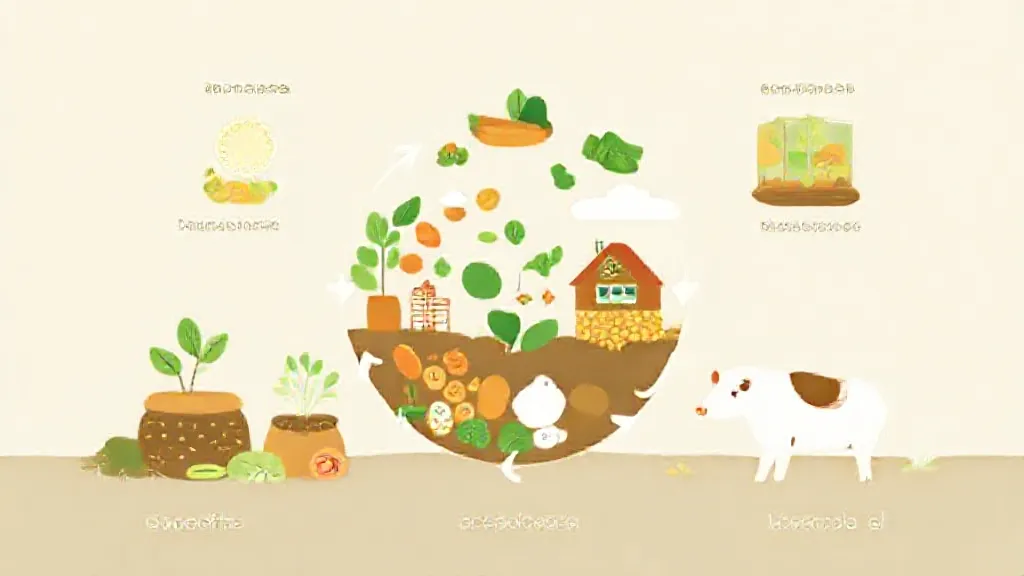Food waste has emerged as one of the most pressing environmental issues of our time, with approximately one-third of all food produced globally going to waste. This not only represents a significant loss of resources but also contributes to greenhouse gas emissions, as decomposing food in landfills produces methane, a potent greenhouse gas. However, innovative solutions are being developed to transform this wasted food into valuable resources, creating a circular economy that benefits both the environment and society.
Understanding Food Waste and Its Impact
Food waste occurs at various stages of the supply chain, from production and processing to consumption. In developed countries, consumer behavior plays a significant role, with excessive purchasing and poor meal planning leading to edible food being discarded. Conversely, in developing nations, food waste primarily occurs during production and distribution due to inadequate infrastructure.
The environmental impact of food waste is profound, with the Food and Agriculture Organization (FAO) estimating that if food waste were a country, it would be the third-largest emitter of greenhouse gases after the United States and China.
Innovative Technologies for Food Waste Transformation
Several innovative technologies are being employed to convert food waste into useful resources. Anaerobic digestion is one such method, where microorganisms break down organic matter in the absence of oxygen to produce biogas, which can be used for energy, and digestate, which can be used as fertilizer.
Composting is another effective technique, allowing food scraps to decompose naturally, enriching soil and reducing the need for chemical fertilizers. These processes not only minimize waste but also contribute to sustainable agricultural practices.
Turning Food Waste into Animal Feed
One of the most promising avenues for food waste transformation is repurposing it as animal feed.
By converting food waste into high-quality feed ingredients, we can reduce the environmental impact of livestock production while providing a cost-effective solution for farmers. Companies are developing technologies to process food waste safely, ensuring that it meets health and safety standards for animal consumption. This not only diverts waste from landfills but also supports the livestock industry.
Creating Nutraceuticals from Food Waste
Another innovative approach involves extracting valuable nutrients and compounds from food waste to create nutraceuticals. For instance, fruit and vegetable peels, which are often discarded, can be processed to extract antioxidants, vitamins, and fibers. These byproducts can then be incorporated into health supplements or functional foods, providing additional revenue streams for food manufacturers while promoting sustainability.
The Role of Policy and Legislation
Effective transformation of food waste into resources requires supportive policies and legislation. Governments play a crucial role in incentivizing businesses to adopt waste-reduction practices and invest in technologies for food waste conversion. Initiatives such as tax breaks for companies that donate food or grants for research into waste reduction technologies can significantly impact how food waste is managed.
Moreover, public awareness campaigns can educate consumers about the importance of reducing food waste and how they can contribute.
Community Initiatives and Education
Community-based initiatives are vital for promoting food waste transformation at the grassroots level. Programs that encourage local composting, food recovery networks, and community gardens can empower individuals and neighborhoods to take action against food waste.
Educational workshops can teach individuals how to minimize waste in their homes, such as proper food storage techniques and creative ways to use leftovers. By fostering a culture of sustainability, communities can significantly reduce food waste and its associated environmental impacts.
The Economic Benefits of Food Waste Transformation
Beyond environmental benefits, transforming food waste into resources can yield significant economic advantages.
The circular economy model not only reduces costs associated with waste disposal but also creates new job opportunities in waste management and resource recovery sectors. By investing in technologies and infrastructure for food waste transformation, communities can stimulate local economies while addressing environmental challenges.
Conclusion: A Sustainable Future
The transformation of food waste into valuable resources is not just a trend but a necessary shift towards a sustainable future.
By embracing innovative technologies, supportive policies, and community engagement, we can significantly reduce food waste and its environmental impact. As individuals, businesses, and governments work together to find solutions, the potential to create a more sustainable and resource-efficient society becomes increasingly attainable.
